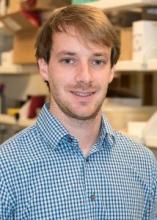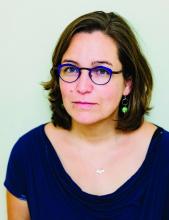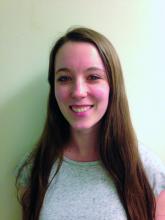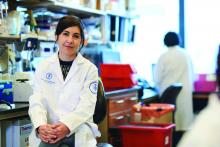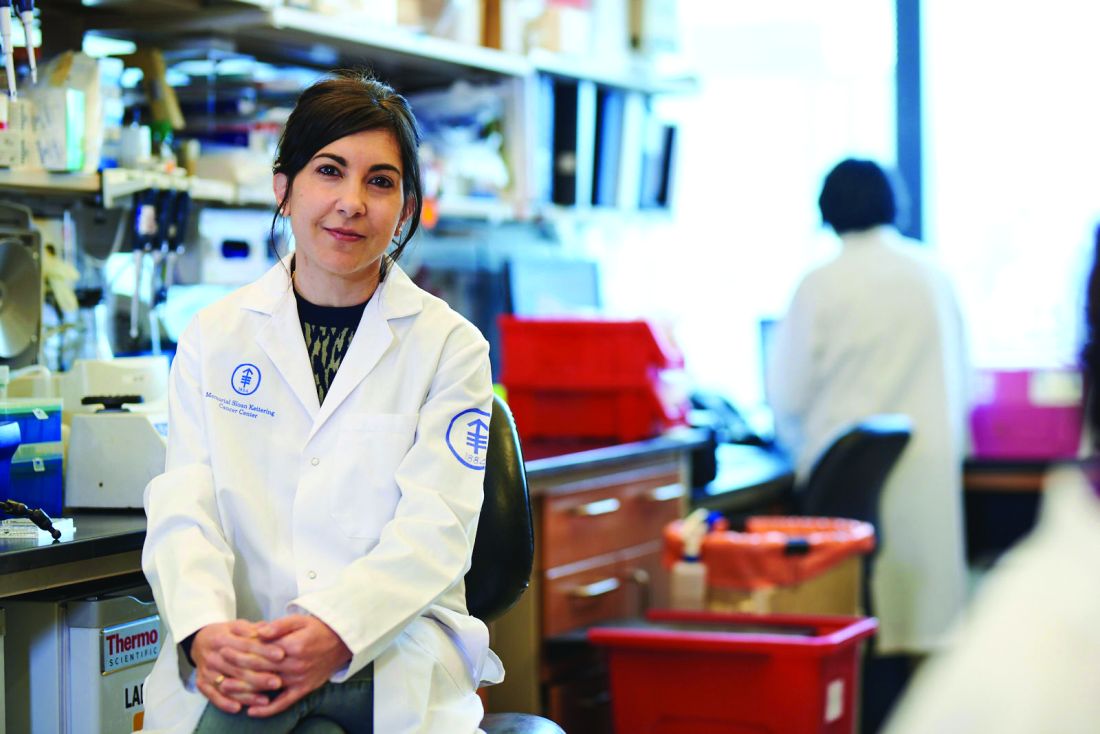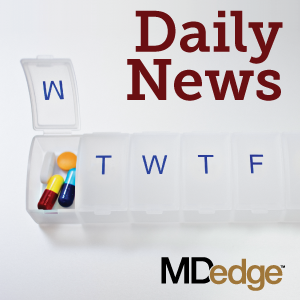User login
Submit Late-Breaking Abstracts
SVS is soliciting abstracts for a late-breaking session at the 2019 Vascular Annual Meeting. Preference will be given to prospective, multi-institutional trials and investigational device exemption studies. As the intent is to provide attendees with true “late-breaking” trial data, retrospective analyses will not be considered for this session. Abstracts must be submitted here by 3 p.m. Central Daylight Time, Wednesday, March 27. For more information, contact the SVS Education Department by email at education@vascularsociety.org.
SVS is soliciting abstracts for a late-breaking session at the 2019 Vascular Annual Meeting. Preference will be given to prospective, multi-institutional trials and investigational device exemption studies. As the intent is to provide attendees with true “late-breaking” trial data, retrospective analyses will not be considered for this session. Abstracts must be submitted here by 3 p.m. Central Daylight Time, Wednesday, March 27. For more information, contact the SVS Education Department by email at education@vascularsociety.org.
SVS is soliciting abstracts for a late-breaking session at the 2019 Vascular Annual Meeting. Preference will be given to prospective, multi-institutional trials and investigational device exemption studies. As the intent is to provide attendees with true “late-breaking” trial data, retrospective analyses will not be considered for this session. Abstracts must be submitted here by 3 p.m. Central Daylight Time, Wednesday, March 27. For more information, contact the SVS Education Department by email at education@vascularsociety.org.
VAM Registration and Housing Open Now
Registration and housing have officially opened for the 2019 Vascular Annual Meeting! This year’s event will be held on June 12-15 in National Harbor, Md., (near Washington, D.C.) As always, attendees will learn about cutting-edge vascular research, attend innovative education sessions, have the opportunity to network with other thought leaders in the field and do much more. You can find the link to register for VAM here.
Registration and housing have officially opened for the 2019 Vascular Annual Meeting! This year’s event will be held on June 12-15 in National Harbor, Md., (near Washington, D.C.) As always, attendees will learn about cutting-edge vascular research, attend innovative education sessions, have the opportunity to network with other thought leaders in the field and do much more. You can find the link to register for VAM here.
Registration and housing have officially opened for the 2019 Vascular Annual Meeting! This year’s event will be held on June 12-15 in National Harbor, Md., (near Washington, D.C.) As always, attendees will learn about cutting-edge vascular research, attend innovative education sessions, have the opportunity to network with other thought leaders in the field and do much more. You can find the link to register for VAM here.
Early career researchers win funding
John Krais, PhD, a researcher at Fox Chase Cancer Center in Philadelphia, has received a $75,000 grant from the Ovarian Cancer Research Alliance.
Dr. Krais received the 2-year grant to fund his investigation into DNA repair processes in BRCA1-mutant cancers, which will focus on the RNF168 protein.
Seven other early career researchers have joined the Parker Institute for Cancer Immunotherapy as part of the Parker Scholars, Parker Bridge Scholars, and Parker Fellows programs.
These researchers will receive a total of up to $3.1 million in funding to further their research on immunotherapies for cancers. Cécile Alanio, MD, PhD, a Parker Bridge Scholar at the University of Pennsylvania in Philadelphia, is researching the impact of infections on T cells in healthy patients with the goal of revealing new approaches to immunotherapy for cancer patients.
Kenneth Hu, PhD, a Parker Scholar at the University of California, San Francisco, plans to use single-cell profiling and microscopy to gain a better understanding of immune cells’ interactions in the tumor microenvironment.
Xihao (Sherlock) Hu, PhD, a Parker Scholar at the Dana-Farber Cancer Institute in Boston, plans to study the interactions between tumor antigens and tumor-infiltrating B cells.
Justin Eyquem, PhD, a Parker Fellow at the University of California, San Francisco, plans to use a genome-editing platform he developed to improve the function of chimeric antigen receptor (CAR) T cells in solid tumors.
Tijana Martinov, PhD, a Parker Scholar at Fred Hutchinson Cancer Research Center in Seattle, is seeking to produce T cells that can target multiple myeloma cells.
Sierra McDonald, a PhD candidate and Parker Scholar at the University of Pennsylvania, is investigating ways to improve responses to CAR T-cell therapy by studying the HMG-box family of proteins.
Roberta Zappasodi, PhD, of Memorial Sloan Kettering Cancer Center in New York, is transitioning from a Parker Scholar to a Parker Bridge Scholar. She previously characterized a population of immune-suppressive T cells. Now, she is working to determine how these cells can be used to improve the efficacy of checkpoint inhibition.
Movers in Medicine highlights career moves and personal achievements by hematologists and oncologists. Did you switch jobs, take on a new role, climb a mountain? Tell us all about it at hematologynews@mdedge.com, and you could be featured in Movers in Medicine.
John Krais, PhD, a researcher at Fox Chase Cancer Center in Philadelphia, has received a $75,000 grant from the Ovarian Cancer Research Alliance.
Dr. Krais received the 2-year grant to fund his investigation into DNA repair processes in BRCA1-mutant cancers, which will focus on the RNF168 protein.
Seven other early career researchers have joined the Parker Institute for Cancer Immunotherapy as part of the Parker Scholars, Parker Bridge Scholars, and Parker Fellows programs.
These researchers will receive a total of up to $3.1 million in funding to further their research on immunotherapies for cancers. Cécile Alanio, MD, PhD, a Parker Bridge Scholar at the University of Pennsylvania in Philadelphia, is researching the impact of infections on T cells in healthy patients with the goal of revealing new approaches to immunotherapy for cancer patients.
Kenneth Hu, PhD, a Parker Scholar at the University of California, San Francisco, plans to use single-cell profiling and microscopy to gain a better understanding of immune cells’ interactions in the tumor microenvironment.
Xihao (Sherlock) Hu, PhD, a Parker Scholar at the Dana-Farber Cancer Institute in Boston, plans to study the interactions between tumor antigens and tumor-infiltrating B cells.
Justin Eyquem, PhD, a Parker Fellow at the University of California, San Francisco, plans to use a genome-editing platform he developed to improve the function of chimeric antigen receptor (CAR) T cells in solid tumors.
Tijana Martinov, PhD, a Parker Scholar at Fred Hutchinson Cancer Research Center in Seattle, is seeking to produce T cells that can target multiple myeloma cells.
Sierra McDonald, a PhD candidate and Parker Scholar at the University of Pennsylvania, is investigating ways to improve responses to CAR T-cell therapy by studying the HMG-box family of proteins.
Roberta Zappasodi, PhD, of Memorial Sloan Kettering Cancer Center in New York, is transitioning from a Parker Scholar to a Parker Bridge Scholar. She previously characterized a population of immune-suppressive T cells. Now, she is working to determine how these cells can be used to improve the efficacy of checkpoint inhibition.
Movers in Medicine highlights career moves and personal achievements by hematologists and oncologists. Did you switch jobs, take on a new role, climb a mountain? Tell us all about it at hematologynews@mdedge.com, and you could be featured in Movers in Medicine.
John Krais, PhD, a researcher at Fox Chase Cancer Center in Philadelphia, has received a $75,000 grant from the Ovarian Cancer Research Alliance.
Dr. Krais received the 2-year grant to fund his investigation into DNA repair processes in BRCA1-mutant cancers, which will focus on the RNF168 protein.
Seven other early career researchers have joined the Parker Institute for Cancer Immunotherapy as part of the Parker Scholars, Parker Bridge Scholars, and Parker Fellows programs.
These researchers will receive a total of up to $3.1 million in funding to further their research on immunotherapies for cancers. Cécile Alanio, MD, PhD, a Parker Bridge Scholar at the University of Pennsylvania in Philadelphia, is researching the impact of infections on T cells in healthy patients with the goal of revealing new approaches to immunotherapy for cancer patients.
Kenneth Hu, PhD, a Parker Scholar at the University of California, San Francisco, plans to use single-cell profiling and microscopy to gain a better understanding of immune cells’ interactions in the tumor microenvironment.
Xihao (Sherlock) Hu, PhD, a Parker Scholar at the Dana-Farber Cancer Institute in Boston, plans to study the interactions between tumor antigens and tumor-infiltrating B cells.
Justin Eyquem, PhD, a Parker Fellow at the University of California, San Francisco, plans to use a genome-editing platform he developed to improve the function of chimeric antigen receptor (CAR) T cells in solid tumors.
Tijana Martinov, PhD, a Parker Scholar at Fred Hutchinson Cancer Research Center in Seattle, is seeking to produce T cells that can target multiple myeloma cells.
Sierra McDonald, a PhD candidate and Parker Scholar at the University of Pennsylvania, is investigating ways to improve responses to CAR T-cell therapy by studying the HMG-box family of proteins.
Roberta Zappasodi, PhD, of Memorial Sloan Kettering Cancer Center in New York, is transitioning from a Parker Scholar to a Parker Bridge Scholar. She previously characterized a population of immune-suppressive T cells. Now, she is working to determine how these cells can be used to improve the efficacy of checkpoint inhibition.
Movers in Medicine highlights career moves and personal achievements by hematologists and oncologists. Did you switch jobs, take on a new role, climb a mountain? Tell us all about it at hematologynews@mdedge.com, and you could be featured in Movers in Medicine.
Get ready for the Big Easy
CHEST 2019 will be in New Orleans, Louisiana, this year, October 19-23. Here are a few ways to be engaged leading up to the meeting.
Submit Abstracts and Case Reports
Do you have original investigative research to share? There’s still some time to submit your abstracts and case reports for presentation at CHEST 2019 through Friday, March 15. If accepted, all abstracts and case reports will be published as submitted in an online CHEST® journal abstract supplement. No corrections will be made once submission is complete.
View submission details (https://chestmeeting.chestnet.org/abstracts-and-case-reports/)
Call for Moderators
CHEST is currently requesting moderators to facilitate discussions, questions, and answers within assigned sessions on-site at CHEST 2019 in New Orleans. Moderators will be notified June to September of their acceptance as a moderator.
View complete details (https://docs.google.com/forms/d/e/1FAIpQLSdSWFSyKAeIjfyYgGRF6km_95znba63bx6iM9TWl08gpdqzEQ/viewform)
CHEST Challenge 2019
US-based CHEST fellows-in-training - does your fellowship have what it takes to win CHEST Challenge 2019? CHEST Challenge is a fun and exciting competition in which CHEST fellows-in-training compete against programs around the country for honor and prizes! The first round of the competition consists of two parts: social media challenges and online quiz. The aggregate score for both of these components will be used to identify the top three highest scoring teams. These top three teams will then be invited to send three fellows each to the CHEST Challenge Championship, a Jeopardy-style game show that takes place live during the CHEST Annual Meeting.
See the rules and how to participate. (chestchallenge.org)
Apply for CHEST Foundation Grants
The CHEST Foundation has awarded more than $10 million in grant funding to nearly 800 recipients worldwide for clinical research and community service. Each year, the CHEST Foundation offers grants to worthy research candidates, generous community service volunteers, and distinguished scholars in a field of expertise.
The CHEST Foundation is accepting grant applications now through April 8, 2019, in the following areas:
• CHEST Foundation Community Service Grant Honoring D. Robert McCaffree, MD, Master FCCP – Up to $15,000 (multiple recipients selected)*
• The GlaxoSmithKline Distinguished Scholar in Respiratory Health – $150,000*
• CHEST Foundation Research Grant in Asthma – $15,000 – $30,000*
• CHEST Foundation Research Grant in Chronic Obstructive Pulmonary Disease – $25,000 – $50,000*
• CHEST Foundation Research Grant in Cystic Fibrosis – $15,000 – $30,000*
• CHEST Foundation Research Grant in Lung Cancer – $50,000 – $100,000*
• CHEST Foundation Research Grant in Nontuberculous Mycobacteria Diseases – $30,000 – $60,000*
• CHEST Foundation Research Grant in Pulmonary Arterial Hypertension – $25,000 – $50,000*
• CHEST Foundation Research Grant in Pulmonary Fibrosis – $25,000 – $50,000*
• CHEST Foundation Research Grant in Venous Thromboembolism – $15,000 – $30,000*
• CHEST Foundation Research Grant in Women’s Lung Health – $10,000*
*Amount contingent on funding.
Learn more on how to apply now. (https://foundation.chestnet.org/grants/apply-for-a-grant/)
CHEST 2019 will be in New Orleans, Louisiana, this year, October 19-23. Here are a few ways to be engaged leading up to the meeting.
Submit Abstracts and Case Reports
Do you have original investigative research to share? There’s still some time to submit your abstracts and case reports for presentation at CHEST 2019 through Friday, March 15. If accepted, all abstracts and case reports will be published as submitted in an online CHEST® journal abstract supplement. No corrections will be made once submission is complete.
View submission details (https://chestmeeting.chestnet.org/abstracts-and-case-reports/)
Call for Moderators
CHEST is currently requesting moderators to facilitate discussions, questions, and answers within assigned sessions on-site at CHEST 2019 in New Orleans. Moderators will be notified June to September of their acceptance as a moderator.
View complete details (https://docs.google.com/forms/d/e/1FAIpQLSdSWFSyKAeIjfyYgGRF6km_95znba63bx6iM9TWl08gpdqzEQ/viewform)
CHEST Challenge 2019
US-based CHEST fellows-in-training - does your fellowship have what it takes to win CHEST Challenge 2019? CHEST Challenge is a fun and exciting competition in which CHEST fellows-in-training compete against programs around the country for honor and prizes! The first round of the competition consists of two parts: social media challenges and online quiz. The aggregate score for both of these components will be used to identify the top three highest scoring teams. These top three teams will then be invited to send three fellows each to the CHEST Challenge Championship, a Jeopardy-style game show that takes place live during the CHEST Annual Meeting.
See the rules and how to participate. (chestchallenge.org)
Apply for CHEST Foundation Grants
The CHEST Foundation has awarded more than $10 million in grant funding to nearly 800 recipients worldwide for clinical research and community service. Each year, the CHEST Foundation offers grants to worthy research candidates, generous community service volunteers, and distinguished scholars in a field of expertise.
The CHEST Foundation is accepting grant applications now through April 8, 2019, in the following areas:
• CHEST Foundation Community Service Grant Honoring D. Robert McCaffree, MD, Master FCCP – Up to $15,000 (multiple recipients selected)*
• The GlaxoSmithKline Distinguished Scholar in Respiratory Health – $150,000*
• CHEST Foundation Research Grant in Asthma – $15,000 – $30,000*
• CHEST Foundation Research Grant in Chronic Obstructive Pulmonary Disease – $25,000 – $50,000*
• CHEST Foundation Research Grant in Cystic Fibrosis – $15,000 – $30,000*
• CHEST Foundation Research Grant in Lung Cancer – $50,000 – $100,000*
• CHEST Foundation Research Grant in Nontuberculous Mycobacteria Diseases – $30,000 – $60,000*
• CHEST Foundation Research Grant in Pulmonary Arterial Hypertension – $25,000 – $50,000*
• CHEST Foundation Research Grant in Pulmonary Fibrosis – $25,000 – $50,000*
• CHEST Foundation Research Grant in Venous Thromboembolism – $15,000 – $30,000*
• CHEST Foundation Research Grant in Women’s Lung Health – $10,000*
*Amount contingent on funding.
Learn more on how to apply now. (https://foundation.chestnet.org/grants/apply-for-a-grant/)
CHEST 2019 will be in New Orleans, Louisiana, this year, October 19-23. Here are a few ways to be engaged leading up to the meeting.
Submit Abstracts and Case Reports
Do you have original investigative research to share? There’s still some time to submit your abstracts and case reports for presentation at CHEST 2019 through Friday, March 15. If accepted, all abstracts and case reports will be published as submitted in an online CHEST® journal abstract supplement. No corrections will be made once submission is complete.
View submission details (https://chestmeeting.chestnet.org/abstracts-and-case-reports/)
Call for Moderators
CHEST is currently requesting moderators to facilitate discussions, questions, and answers within assigned sessions on-site at CHEST 2019 in New Orleans. Moderators will be notified June to September of their acceptance as a moderator.
View complete details (https://docs.google.com/forms/d/e/1FAIpQLSdSWFSyKAeIjfyYgGRF6km_95znba63bx6iM9TWl08gpdqzEQ/viewform)
CHEST Challenge 2019
US-based CHEST fellows-in-training - does your fellowship have what it takes to win CHEST Challenge 2019? CHEST Challenge is a fun and exciting competition in which CHEST fellows-in-training compete against programs around the country for honor and prizes! The first round of the competition consists of two parts: social media challenges and online quiz. The aggregate score for both of these components will be used to identify the top three highest scoring teams. These top three teams will then be invited to send three fellows each to the CHEST Challenge Championship, a Jeopardy-style game show that takes place live during the CHEST Annual Meeting.
See the rules and how to participate. (chestchallenge.org)
Apply for CHEST Foundation Grants
The CHEST Foundation has awarded more than $10 million in grant funding to nearly 800 recipients worldwide for clinical research and community service. Each year, the CHEST Foundation offers grants to worthy research candidates, generous community service volunteers, and distinguished scholars in a field of expertise.
The CHEST Foundation is accepting grant applications now through April 8, 2019, in the following areas:
• CHEST Foundation Community Service Grant Honoring D. Robert McCaffree, MD, Master FCCP – Up to $15,000 (multiple recipients selected)*
• The GlaxoSmithKline Distinguished Scholar in Respiratory Health – $150,000*
• CHEST Foundation Research Grant in Asthma – $15,000 – $30,000*
• CHEST Foundation Research Grant in Chronic Obstructive Pulmonary Disease – $25,000 – $50,000*
• CHEST Foundation Research Grant in Cystic Fibrosis – $15,000 – $30,000*
• CHEST Foundation Research Grant in Lung Cancer – $50,000 – $100,000*
• CHEST Foundation Research Grant in Nontuberculous Mycobacteria Diseases – $30,000 – $60,000*
• CHEST Foundation Research Grant in Pulmonary Arterial Hypertension – $25,000 – $50,000*
• CHEST Foundation Research Grant in Pulmonary Fibrosis – $25,000 – $50,000*
• CHEST Foundation Research Grant in Venous Thromboembolism – $15,000 – $30,000*
• CHEST Foundation Research Grant in Women’s Lung Health – $10,000*
*Amount contingent on funding.
Learn more on how to apply now. (https://foundation.chestnet.org/grants/apply-for-a-grant/)
CHEST updates guidelines on PAH
The American College of Chest Physicians® (CHEST) has published updates to the evidence-based guidelines on therapy for pulmonary arterial hypertension (PAH). In the latest evidence-based guideline, Therapy for Pulmonary Arterial Hypertension in Adults: Update of the CHEST Guideline and Expert Panel Report, experts provide 78 evidence-based recommendations for appropriate use in treating patients with PAH.
“New recommendations and ungraded consensus-based statements were developed in this update based on new studies that were published since the 2014 guidelines. In addition, an evidence-based and consensus-driven treatment algorithm was created to guide the clinician through an organized approach to management,” says CHEST Pulmonary Arterial Hypertension Guidelines Committee Co-Chair, Deborah Jo Levine, MD, FCCP.
As part of the guideline development process, the panel updated the systematic review on the same clinical questions and criteria. Based on the results of the systematic review, the panel developed two new recommendations about pharmacologic therapy for PAH:
•For treatment-naive patients with PAH who are World Health Organization (WHO) functional class II and III, we suggest initial combination therapy with ambrisentan and tadalafil to improve 6-minute walk distance (6MWD).
•For stable or symptomatic patients with PAH on background therapy with ambrisentan, we suggest the addition of tadalafil to improve 6MWD.
The complete guideline article is free to view in the Online First section of the journal CHEST®.
The American College of Chest Physicians® (CHEST) has published updates to the evidence-based guidelines on therapy for pulmonary arterial hypertension (PAH). In the latest evidence-based guideline, Therapy for Pulmonary Arterial Hypertension in Adults: Update of the CHEST Guideline and Expert Panel Report, experts provide 78 evidence-based recommendations for appropriate use in treating patients with PAH.
“New recommendations and ungraded consensus-based statements were developed in this update based on new studies that were published since the 2014 guidelines. In addition, an evidence-based and consensus-driven treatment algorithm was created to guide the clinician through an organized approach to management,” says CHEST Pulmonary Arterial Hypertension Guidelines Committee Co-Chair, Deborah Jo Levine, MD, FCCP.
As part of the guideline development process, the panel updated the systematic review on the same clinical questions and criteria. Based on the results of the systematic review, the panel developed two new recommendations about pharmacologic therapy for PAH:
•For treatment-naive patients with PAH who are World Health Organization (WHO) functional class II and III, we suggest initial combination therapy with ambrisentan and tadalafil to improve 6-minute walk distance (6MWD).
•For stable or symptomatic patients with PAH on background therapy with ambrisentan, we suggest the addition of tadalafil to improve 6MWD.
The complete guideline article is free to view in the Online First section of the journal CHEST®.
The American College of Chest Physicians® (CHEST) has published updates to the evidence-based guidelines on therapy for pulmonary arterial hypertension (PAH). In the latest evidence-based guideline, Therapy for Pulmonary Arterial Hypertension in Adults: Update of the CHEST Guideline and Expert Panel Report, experts provide 78 evidence-based recommendations for appropriate use in treating patients with PAH.
“New recommendations and ungraded consensus-based statements were developed in this update based on new studies that were published since the 2014 guidelines. In addition, an evidence-based and consensus-driven treatment algorithm was created to guide the clinician through an organized approach to management,” says CHEST Pulmonary Arterial Hypertension Guidelines Committee Co-Chair, Deborah Jo Levine, MD, FCCP.
As part of the guideline development process, the panel updated the systematic review on the same clinical questions and criteria. Based on the results of the systematic review, the panel developed two new recommendations about pharmacologic therapy for PAH:
•For treatment-naive patients with PAH who are World Health Organization (WHO) functional class II and III, we suggest initial combination therapy with ambrisentan and tadalafil to improve 6-minute walk distance (6MWD).
•For stable or symptomatic patients with PAH on background therapy with ambrisentan, we suggest the addition of tadalafil to improve 6MWD.
The complete guideline article is free to view in the Online First section of the journal CHEST®.
CHEST reaccredited by Society for Simulation in Healthcare
The American College of Chest Physicians (CHEST) received reaccreditation from the Society for Simulation in Healthcare (SSH) for the 2018-2023 term in the areas of Teaching/Education, Assessment, and Research. In 2013, CHEST became the first and only medical specialty society to achieve SSH accreditation, a distinction that continues today. Currently, CHEST joins over 125 SSH-accredited programs worldwide, including universities, hospitals, and medical education companies.
The reaccreditation process was the result of months of preparation on behalf of CHEST Simulation Program staff, CHEST Accreditation staff, CHEST Outcomes staff, as well as CHEST’s Live Learning Domain Task Force chairs and other education leadership. This culminated in mid-November at a face-to-face on-site interview with site reviewers representing SSH and CHEST Simulation Program faculty and staff and CHEST leadership. Throughout the process, CHEST was given the opportunity to highlight the unique and innovative ways in which we are utilizing simulation-based education to provide greater clinical insights to enhance patient care.
We recognize that this isn’t only an every-4-year commitment, but it is resultant of the ongoing efforts from a group of dedicated individuals. Thank you to all whose contributions ensured our success!
The American College of Chest Physicians (CHEST) received reaccreditation from the Society for Simulation in Healthcare (SSH) for the 2018-2023 term in the areas of Teaching/Education, Assessment, and Research. In 2013, CHEST became the first and only medical specialty society to achieve SSH accreditation, a distinction that continues today. Currently, CHEST joins over 125 SSH-accredited programs worldwide, including universities, hospitals, and medical education companies.
The reaccreditation process was the result of months of preparation on behalf of CHEST Simulation Program staff, CHEST Accreditation staff, CHEST Outcomes staff, as well as CHEST’s Live Learning Domain Task Force chairs and other education leadership. This culminated in mid-November at a face-to-face on-site interview with site reviewers representing SSH and CHEST Simulation Program faculty and staff and CHEST leadership. Throughout the process, CHEST was given the opportunity to highlight the unique and innovative ways in which we are utilizing simulation-based education to provide greater clinical insights to enhance patient care.
We recognize that this isn’t only an every-4-year commitment, but it is resultant of the ongoing efforts from a group of dedicated individuals. Thank you to all whose contributions ensured our success!
The American College of Chest Physicians (CHEST) received reaccreditation from the Society for Simulation in Healthcare (SSH) for the 2018-2023 term in the areas of Teaching/Education, Assessment, and Research. In 2013, CHEST became the first and only medical specialty society to achieve SSH accreditation, a distinction that continues today. Currently, CHEST joins over 125 SSH-accredited programs worldwide, including universities, hospitals, and medical education companies.
The reaccreditation process was the result of months of preparation on behalf of CHEST Simulation Program staff, CHEST Accreditation staff, CHEST Outcomes staff, as well as CHEST’s Live Learning Domain Task Force chairs and other education leadership. This culminated in mid-November at a face-to-face on-site interview with site reviewers representing SSH and CHEST Simulation Program faculty and staff and CHEST leadership. Throughout the process, CHEST was given the opportunity to highlight the unique and innovative ways in which we are utilizing simulation-based education to provide greater clinical insights to enhance patient care.
We recognize that this isn’t only an every-4-year commitment, but it is resultant of the ongoing efforts from a group of dedicated individuals. Thank you to all whose contributions ensured our success!
In Memoriam
CHEST has been notified of the following deaths.
We extend our sincere condolences.
Faroque A. Khan, MBBS
Venessa Holland, MD, FCCP
CHEST has been notified of the following deaths.
We extend our sincere condolences.
Faroque A. Khan, MBBS
Venessa Holland, MD, FCCP
CHEST has been notified of the following deaths.
We extend our sincere condolences.
Faroque A. Khan, MBBS
Venessa Holland, MD, FCCP
Ready for universal hepatitis C testing?
Poor asthma control during pregnancy trims live birth rates. Fluorouracil beats other actinic keratosis treatments in a head-to-head trial. And vitamin C for sepsis? Experts take sides in a sharp debate.
Amazon Alexa
Apple Podcasts
Google Podcasts
Spotify
Poor asthma control during pregnancy trims live birth rates. Fluorouracil beats other actinic keratosis treatments in a head-to-head trial. And vitamin C for sepsis? Experts take sides in a sharp debate.
Amazon Alexa
Apple Podcasts
Google Podcasts
Spotify
Poor asthma control during pregnancy trims live birth rates. Fluorouracil beats other actinic keratosis treatments in a head-to-head trial. And vitamin C for sepsis? Experts take sides in a sharp debate.
Amazon Alexa
Apple Podcasts
Google Podcasts
Spotify
Thyroid Hormones Predict Readmission After Aortic Surgery
Thoracic endovascular aortic repair (TEVAR) is a “young technology with several unknowns,” say researchers from Shantou University Medical College, and Wuhan Asia Heart Hospital, both China. One of those unknowns is the risk factors for prognosis after TEVAR.
After all, thyroid hormones are critical to many areas of heart health, such as vascular remodeling; hypothyroidism can aggravate hypertension; and low levels of free thyroxine (FT4) influence arterial stiffness and C-reactive protein. In spite of the many links, however, the relationship between subclinical hypothyroidism and cardiovascular disease has not been fully elucidated, the researchers say. They conducted a study to evaluate whether thyroid hormones predicted early (30 days) and mid-term (12 months) aorta-related adverse events (AEs), such as death, progression of aortic disease, organ failure, or lower limb ischemia; and aorta-related readmissions.
In their study, 338 patients were stratified according to their levels of FT4 before undergoing TEVAR. Of the enrolled patients, 288 were followed up at 12 months for readmission; 292 were followed up on AEs.
Patients with low normal levels of FT4 had a greater risk of readmission after thoracic endovascular aortic repair. Within 30 days, the incidence of AEs and readmission were 2.7% and 4.1%; within 12 months, 8.9% and 13.5%. After the researchers adjusted for confounders, the patients with the lowest FT4 quartile were at significantly greater risk for readmission than those in the highest-quartile group, at both early and mid-term follow-up.
The same did not hold true for AEs. The researchers say this is not uncommon in studies of predictors of AEs and readmission: Factors that are weak predictors of readmission tend to be strong predictors of AEs, and vice versa.
Thoracic endovascular aortic repair (TEVAR) is a “young technology with several unknowns,” say researchers from Shantou University Medical College, and Wuhan Asia Heart Hospital, both China. One of those unknowns is the risk factors for prognosis after TEVAR.
After all, thyroid hormones are critical to many areas of heart health, such as vascular remodeling; hypothyroidism can aggravate hypertension; and low levels of free thyroxine (FT4) influence arterial stiffness and C-reactive protein. In spite of the many links, however, the relationship between subclinical hypothyroidism and cardiovascular disease has not been fully elucidated, the researchers say. They conducted a study to evaluate whether thyroid hormones predicted early (30 days) and mid-term (12 months) aorta-related adverse events (AEs), such as death, progression of aortic disease, organ failure, or lower limb ischemia; and aorta-related readmissions.
In their study, 338 patients were stratified according to their levels of FT4 before undergoing TEVAR. Of the enrolled patients, 288 were followed up at 12 months for readmission; 292 were followed up on AEs.
Patients with low normal levels of FT4 had a greater risk of readmission after thoracic endovascular aortic repair. Within 30 days, the incidence of AEs and readmission were 2.7% and 4.1%; within 12 months, 8.9% and 13.5%. After the researchers adjusted for confounders, the patients with the lowest FT4 quartile were at significantly greater risk for readmission than those in the highest-quartile group, at both early and mid-term follow-up.
The same did not hold true for AEs. The researchers say this is not uncommon in studies of predictors of AEs and readmission: Factors that are weak predictors of readmission tend to be strong predictors of AEs, and vice versa.
Thoracic endovascular aortic repair (TEVAR) is a “young technology with several unknowns,” say researchers from Shantou University Medical College, and Wuhan Asia Heart Hospital, both China. One of those unknowns is the risk factors for prognosis after TEVAR.
After all, thyroid hormones are critical to many areas of heart health, such as vascular remodeling; hypothyroidism can aggravate hypertension; and low levels of free thyroxine (FT4) influence arterial stiffness and C-reactive protein. In spite of the many links, however, the relationship between subclinical hypothyroidism and cardiovascular disease has not been fully elucidated, the researchers say. They conducted a study to evaluate whether thyroid hormones predicted early (30 days) and mid-term (12 months) aorta-related adverse events (AEs), such as death, progression of aortic disease, organ failure, or lower limb ischemia; and aorta-related readmissions.
In their study, 338 patients were stratified according to their levels of FT4 before undergoing TEVAR. Of the enrolled patients, 288 were followed up at 12 months for readmission; 292 were followed up on AEs.
Patients with low normal levels of FT4 had a greater risk of readmission after thoracic endovascular aortic repair. Within 30 days, the incidence of AEs and readmission were 2.7% and 4.1%; within 12 months, 8.9% and 13.5%. After the researchers adjusted for confounders, the patients with the lowest FT4 quartile were at significantly greater risk for readmission than those in the highest-quartile group, at both early and mid-term follow-up.
The same did not hold true for AEs. The researchers say this is not uncommon in studies of predictors of AEs and readmission: Factors that are weak predictors of readmission tend to be strong predictors of AEs, and vice versa.
Nonadherent Diabetes Patients: An Unexpected Group
“Time-specific” dosing of insulin can be an obstacle to adherence for patients with complicated, busy lives. More than half of patients with type 2 diabetes do not achieve their target HbA1c of 7% after insulin is added to their treatment regimen. Researchers from CAPHRI School for Public Health and Primary Care, and CARIM Institute in The Netherlands, who surveyed 1,483 adults with diabetes suggest that it may be time to rethink both prescribing and patient education, in part because of who fell into the nonadherent group.
The researchers conducted a web-based self-report survey. Of the respondents, 58% used bolus insulin before meals, 24% after meals, and 18% before, during, or after meals. The researchers excluded the “mixed” cohort, including 1,218 in the analysis.
Half the respondents in the postmeal cohort reported experiencing minor hypoglycemic events at least once a week compared with 35% of the premeal cohort. Similarly, more in the postmeal group had had major hypoglycemic events (38% vs 26%). The postmeal respondents also were more likely to have HbA1c ≥ 9% (40% vs 29%). And they were less likely to report always testing their blood glucose before injecting insulin (36% vs 54%).
Perhaps contrary to some expectations, the respondents who injected insulin postmeal were younger, had shorter duration of diabetes, had the highest level of college or university education, were more likely to be employed, and more frequently participated in diabetes education programs (including one-on-one programs).
The researchers say those data suggest that factors other than lack of diabetes education, education, or low socioeconomic status should be considered in explaining the nonadherence. They add that some research has shown that education programs have an “inconsistent relationship with patient adherence.” They suggest that such programs might be improved by placing greater emphasis on the importance of dosing insulin before meals.
Of the nearly 20% of patients who use insulin treatment, > 90% receive bolus insulin. The researchers note that respondents preferred a form of bolus insulin they can administer before, after, or during meals as they see fit. The respondents who injected postmeal were more likely than the premeal respondents to prefer this formulation.
“Time-specific” dosing of insulin can be an obstacle to adherence for patients with complicated, busy lives. More than half of patients with type 2 diabetes do not achieve their target HbA1c of 7% after insulin is added to their treatment regimen. Researchers from CAPHRI School for Public Health and Primary Care, and CARIM Institute in The Netherlands, who surveyed 1,483 adults with diabetes suggest that it may be time to rethink both prescribing and patient education, in part because of who fell into the nonadherent group.
The researchers conducted a web-based self-report survey. Of the respondents, 58% used bolus insulin before meals, 24% after meals, and 18% before, during, or after meals. The researchers excluded the “mixed” cohort, including 1,218 in the analysis.
Half the respondents in the postmeal cohort reported experiencing minor hypoglycemic events at least once a week compared with 35% of the premeal cohort. Similarly, more in the postmeal group had had major hypoglycemic events (38% vs 26%). The postmeal respondents also were more likely to have HbA1c ≥ 9% (40% vs 29%). And they were less likely to report always testing their blood glucose before injecting insulin (36% vs 54%).
Perhaps contrary to some expectations, the respondents who injected insulin postmeal were younger, had shorter duration of diabetes, had the highest level of college or university education, were more likely to be employed, and more frequently participated in diabetes education programs (including one-on-one programs).
The researchers say those data suggest that factors other than lack of diabetes education, education, or low socioeconomic status should be considered in explaining the nonadherence. They add that some research has shown that education programs have an “inconsistent relationship with patient adherence.” They suggest that such programs might be improved by placing greater emphasis on the importance of dosing insulin before meals.
Of the nearly 20% of patients who use insulin treatment, > 90% receive bolus insulin. The researchers note that respondents preferred a form of bolus insulin they can administer before, after, or during meals as they see fit. The respondents who injected postmeal were more likely than the premeal respondents to prefer this formulation.
“Time-specific” dosing of insulin can be an obstacle to adherence for patients with complicated, busy lives. More than half of patients with type 2 diabetes do not achieve their target HbA1c of 7% after insulin is added to their treatment regimen. Researchers from CAPHRI School for Public Health and Primary Care, and CARIM Institute in The Netherlands, who surveyed 1,483 adults with diabetes suggest that it may be time to rethink both prescribing and patient education, in part because of who fell into the nonadherent group.
The researchers conducted a web-based self-report survey. Of the respondents, 58% used bolus insulin before meals, 24% after meals, and 18% before, during, or after meals. The researchers excluded the “mixed” cohort, including 1,218 in the analysis.
Half the respondents in the postmeal cohort reported experiencing minor hypoglycemic events at least once a week compared with 35% of the premeal cohort. Similarly, more in the postmeal group had had major hypoglycemic events (38% vs 26%). The postmeal respondents also were more likely to have HbA1c ≥ 9% (40% vs 29%). And they were less likely to report always testing their blood glucose before injecting insulin (36% vs 54%).
Perhaps contrary to some expectations, the respondents who injected insulin postmeal were younger, had shorter duration of diabetes, had the highest level of college or university education, were more likely to be employed, and more frequently participated in diabetes education programs (including one-on-one programs).
The researchers say those data suggest that factors other than lack of diabetes education, education, or low socioeconomic status should be considered in explaining the nonadherence. They add that some research has shown that education programs have an “inconsistent relationship with patient adherence.” They suggest that such programs might be improved by placing greater emphasis on the importance of dosing insulin before meals.
Of the nearly 20% of patients who use insulin treatment, > 90% receive bolus insulin. The researchers note that respondents preferred a form of bolus insulin they can administer before, after, or during meals as they see fit. The respondents who injected postmeal were more likely than the premeal respondents to prefer this formulation.
